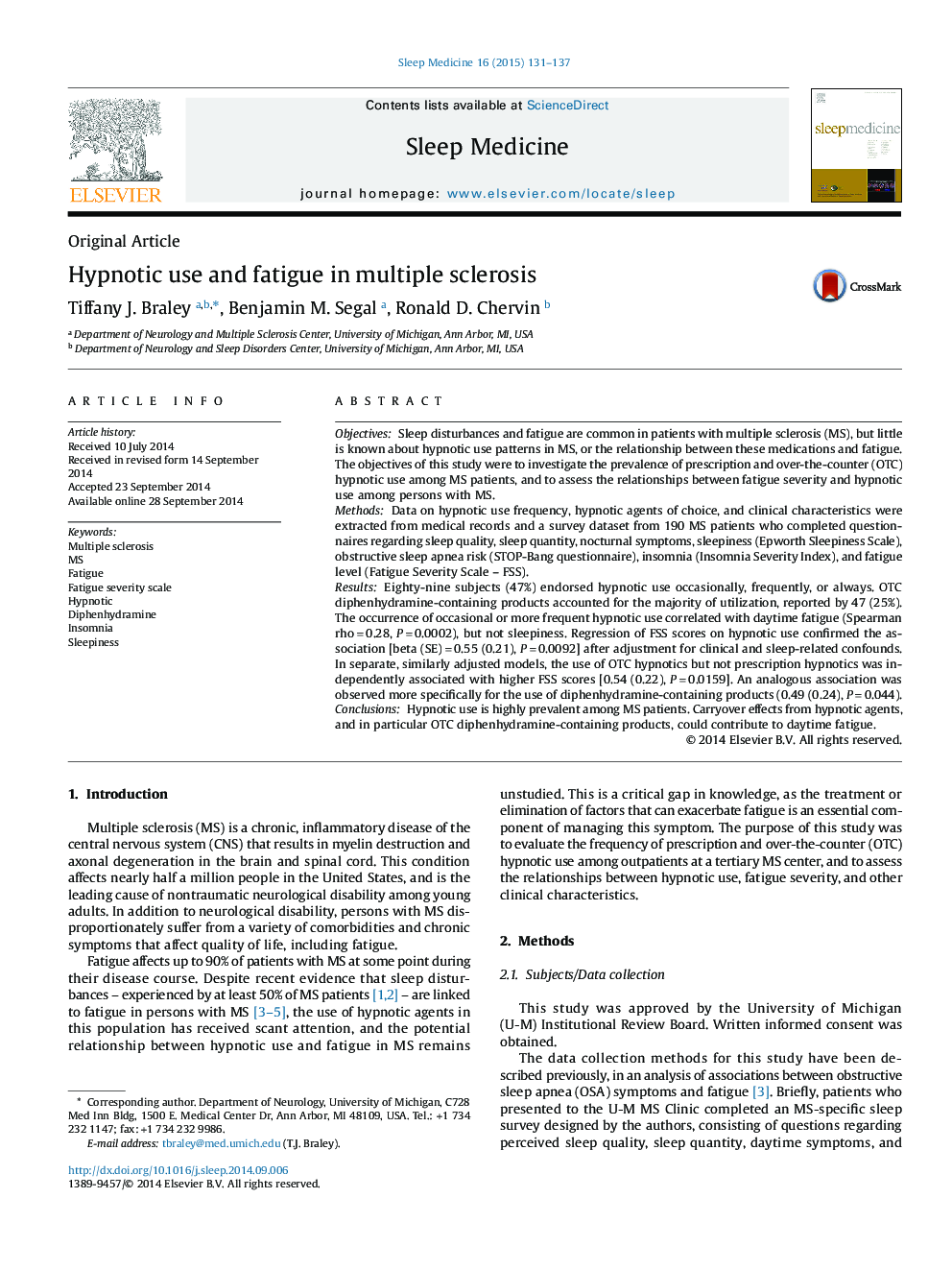| کد مقاله | کد نشریه | سال انتشار | مقاله انگلیسی | نسخه تمام متن |
|---|---|---|---|---|
| 6060787 | 1200237 | 2015 | 7 صفحه PDF | دانلود رایگان |
- Fatigue, insomnia, and hypnotic use are each common in patients with multiple sclerosis (MS).
- Products that contain diphenhydramine account for a high proportion of hypnotic use in MS.
- Over-the-counter hypnotic use is independently associated with MS-related fatigue.
ObjectivesSleep disturbances and fatigue are common in patients with multiple sclerosis (MS), but little is known about hypnotic use patterns in MS, or the relationship between these medications and fatigue. The objectives of this study were to investigate the prevalence of prescription and over-the-counter (OTC) hypnotic use among MS patients, and to assess the relationships between fatigue severity and hypnotic use among persons with MS.MethodsData on hypnotic use frequency, hypnotic agents of choice, and clinical characteristics were extracted from medical records and a survey dataset from 190 MS patients who completed questionnaires regarding sleep quality, sleep quantity, nocturnal symptoms, sleepiness (Epworth Sleepiness Scale), obstructive sleep apnea risk (STOP-Bang questionnaire), insomnia (Insomnia Severity Index), and fatigue level (Fatigue Severity Scale - FSS).ResultsEighty-nine subjects (47%) endorsed hypnotic use occasionally, frequently, or always. OTC diphenhydramine-containing products accounted for the majority of utilization, reported by 47 (25%). The occurrence of occasional or more frequent hypnotic use correlated with daytime fatigue (Spearman rhoâ=â0.28, Pâ=â0.0002), but not sleepiness. Regression of FSS scores on hypnotic use confirmed the association [beta (SE)â=â0.55 (0.21), Pâ=â0.0092] after adjustment for clinical and sleep-related confounds. In separate, similarly adjusted models, the use of OTC hypnotics but not prescription hypnotics was independently associated with higher FSS scores [0.54 (0.22), Pâ=â0.0159]. An analogous association was observed more specifically for the use of diphenhydramine-containing products (0.49 (0.24), Pâ=â0.044).ConclusionsHypnotic use is highly prevalent among MS patients. Carryover effects from hypnotic agents, and in particular OTC diphenhydramine-containing products, could contribute to daytime fatigue.
Journal: Sleep Medicine - Volume 16, Issue 1, January 2015, Pages 131-137
